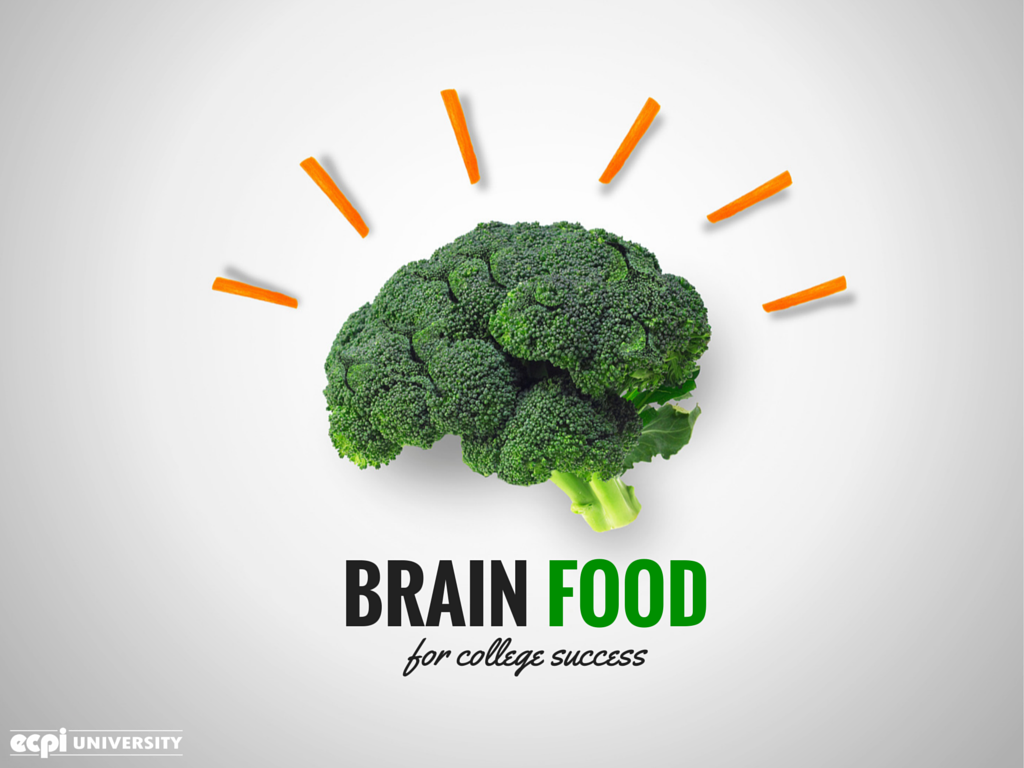
We've all been there . . . tired, stressed, and hungry. Oftentimes, we then reach for whatever is at hand, regardless if it's actually good for us. Eating too many fatty and processed foods is not just bad for our waistline and bodies; it can contribute to the long-term diminishing of brain function as well.
Whether you’re interested in a short-term study boost or long-term mental health benefits, there are certain snacks and meal staples you should reach for to keep your brain working at top capacity. There’s a lot of hype on the internet about “superfoods,” and while most of us know to be wary of wild claims on the web, there are, in fact, some kinds of food that have been scientifically shown to increase brain function, memory, and cognition. Adding these foods to your daily diet can keep your brain operating at its peak.
The Power of Antioxidants:
Many of the foods listed below are brain-healthy because they are high in antioxidants. These are chemicals that slow or even prevent cell damage. Any chemical compound that donates electrons and counteracts free radicals is an antioxidant.
Many fruits and vegetables have natural antioxidants. Most dietary versions of these compounds are found in vitamins A, C, and E, and beta carotene, and lycopene.
For quick reference, here are some easy-to-find sources of these substances:
Vitamin A:
effective for eye health and cognition
Sweet potatoes, carrots, apricots, collards
Vitamin C:
contains antioxidants that block damaging free radicals
Citrus fruits, tomatoes, leafy greens
Vitamin E:
contains gamma tocopherol, offering protection against brain disorders
Nuts, whole grains, veggies, liver oil
Beta carotene:
an antioxidant also shown to have benefits to vision and combating osteoporosis
Squash, pumpkin
Lycopene:
another powerful antioxidant also being studied for its potential cancer-prevention benefits
Pink and red fruits and veggies
Additionally, these are some other proven brain-healthy foods you can add to your nutritional routine:
Blueberries:
These berries have been shown to protect the brain from the negative side effects of stress and may reduce the properties of some age-related illnesses. Blueberries have also been used in studies suggesting they improve learning capacity, making it a great study-time snack.
Fruit Juices:
Oranges, pomegranates, and other brightly colored fruits give antioxidant benefits which protects the brain from the damage produced by free radicals. Some juices are high in sugar, though, so be wary of overconsumption. A moderate 2-4 oz. per day should be sufficient.
Cruciferous Veggies:
Leafy greens and veggies like kale, brussels sprouts, collard greens, and broccoli have powerful antioxidants, studies also show that regularly eating these foods may help fight against dementia.
Beans:
Beans of any kind help regulate glucose levels in the blood. The brain needs glucose for fuel, but cannot store it, meaning it needs a consistent supply. The regulatory effects of beans make sure your body gives your brain glucose at a steady rate.
Nuts and Seeds:
These are good sources of vitamin E which can help combat cognitive decline as we age.
Salmon:
Deep water fish are high in omega-3 fatty acids which is important for brain
function. Incorporating salmon or other fatty fish like herring or sardines into your routine 3-4 times a week can greatly improve brain function.
Eggs:
Egg yolks have choline which your brain needs to make acetylcholine, a neurotransmitter needed for healthy brain cells.
Fresh Brewed Tea:
Hot or iced, tea has a moderate amount of caffeine which can enhance memory, focus, and mood. Tea also has important antioxidants. To reap the gains, tea has to be freshly brewed, not instant. Consider 2-3 cups over the course of the day.
Wine:
Too much alcohol is damaging to the brain, but in moderation (1-2 glasses per day), a glass of red wine has powerful antioxidants which can keep brain function strong.
Dark Chocolate:
Dark chocolate also has antioxidants and caffeine. Consider including half to one ounce of dark chocolate a day.
By incorporating just a few of these brain foods into your daily routine, you can gain the benefit of increased brain function over the course of the rest of your life. To stay sharp and healthy, eat smart.
ECPI was the best decision I ever made
— Jacob Gersfeld (@iejacob) June 17, 2015
Contact ECPI University to learn more about our many accelerated degree programs, and then get to snacking! It could be the Best Decision You Ever Make!
DISCLAIMER – ECPI University makes no claim, warranty or guarantee as to actual employability or earning potential to current, past or future students or graduates of any educational program we offer. The ECPI University website is published for informational purposes only. Every effort is made to ensure the accuracy of information contained on the ECPI.edu domain; however, no warranty of accuracy is made. No contractual rights, either expressed or implied, are created by its content.
For more information about ECPI University or any of our programs click here: http://www.ecpi.edu/ or http://ow.ly/Ca1ya.


